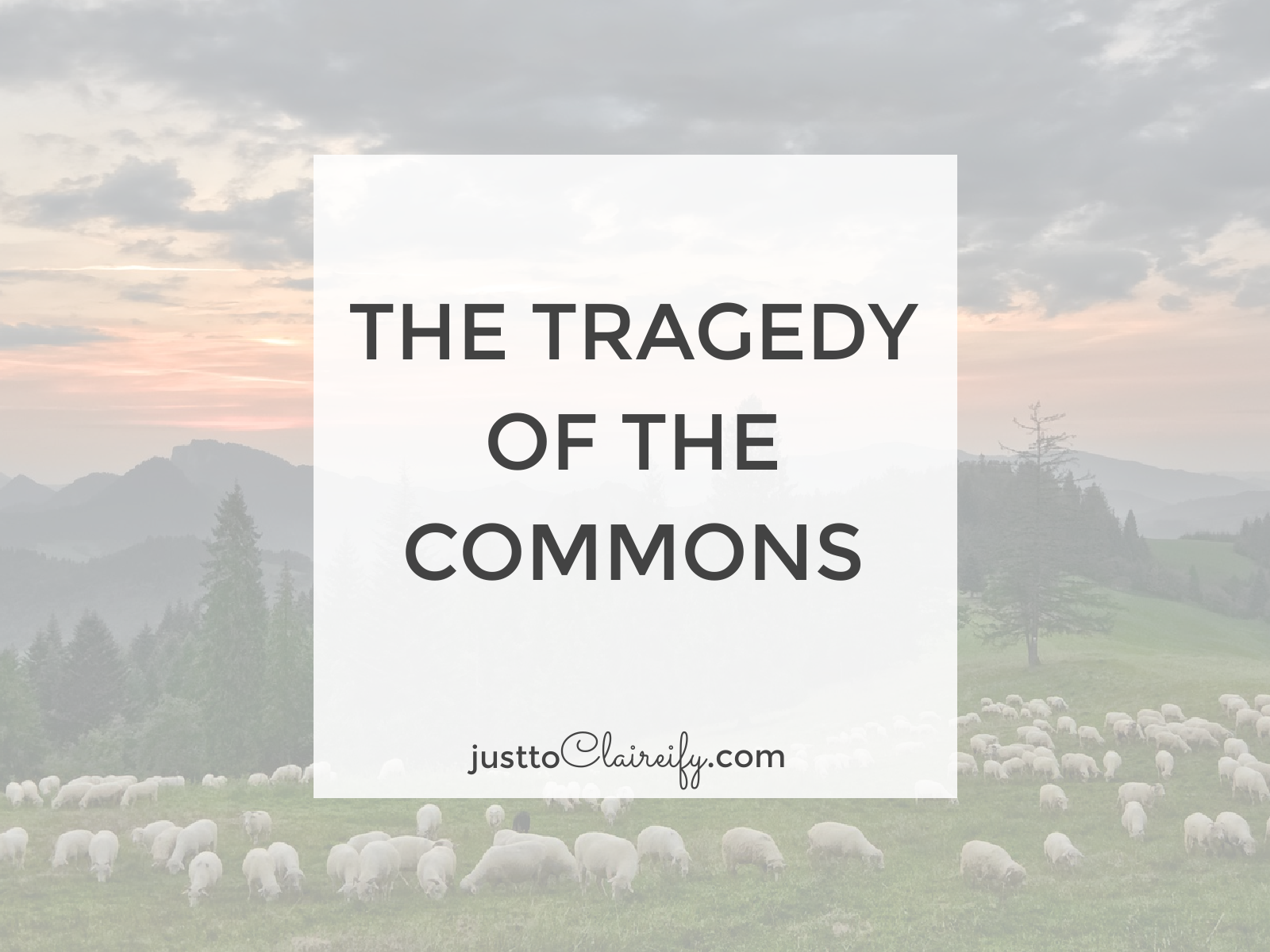 I’ve been thinking a lot about sacrifice lately, especially with regards to current issues but also in regards to society and government in general.
I’ve been thinking a lot about sacrifice lately, especially with regards to current issues but also in regards to society and government in general.
Back in 9th Grade Government Class…
When I was a freshman in high school, our government teacher ran the same activity on the first day of school that he did every year. He divided the class into a few large groups and assigned each group the same task.
We were sheep farmers, and we had a large plot of public land on which to graze our sheep. If I (or any individual) allowed my own sheep to overgraze, I became richer, but the land degraded. How should we design our own government to balance the personal interests of individuals–the creators of the government–while protecting the environment for the common good?
Which form of government is the best? It’s a trick question, of course. And the mark of an excellent teacher that I am still thinking about it, about one hour on a Tuesday afternoon in September 2009, all these years later.
Each group came up with a different solution, and I’m sure Mr. Dockter had seen it all over the years. And each group criticized the others as being too restricting of personal liberties–or too lenient at the expense of the common good.
There is no perfect solution when it comes to governing ourselves.
From the outside, I can look at other countries and clearly see the benefits of living there–all the privileges I don’t have as a US citizen. But that’s called wearing rose-tinted glasses. For every privilege that other countries’ citizens have, there’s something they sacrifice.
For example, if everyone has healthcare, individuals pay more in taxes.
If society is more equitable, the people who make the most in American society–doctors, lawyers, software engineers–earn less, in addition to blue-collar people earning more.
If society relies on sharing common values to function, practices like homeschooling are outlawed so that all children learn the same things in school.
If environmental protection is prioritized, an oil baron can’t afford his tenth yacht. Cry me a river.
It feels strange to me to exist in the American system and feel strongly about certain topics within the context of our system. In some ways here, I am very liberal. In others, I’m conservative or moderate, and in some I’m off the spectrum completely.
But I wouldn’t feel so strongly about some things–or might even hold the opposite belief–if I lived elsewhere.
And when I consider who I might be if I grew up elsewhere or moved elsewhere now, I strongly prefer the non-American values and version of myself.
While I plan to homeschool in the US and feel strongly about that choice, I’d be totally fine sending my kids to public school in a Scandinavian country (which you basically have to–but I would prefer it anyways).
While I feel strongly about medical freedom in the US, I don’t feel as passionate about it in the context of a country with universal healthcare. (And then on the other hand, I don’t think universal healthcare would function well here as it does in smaller, less diverse places. Maybe on a state level, but I also live in a healthy, wealthy state, so that’s easy for me to say.)
While I disliked high taxes in California, I wouldn’t mind paying them in some other places.
I think what it comes down to is how cared for one feels within a system.
And the American system has made cynics of its younger generations. Because it’s designed to further the interests of old politicians and big industries.
I don’t feel like America cares about me at all, so what do I owe the older generations who hold all the power?
There is no tragedy of the commons, because there is no commons. There is a tiny tiny second-rate plot for most people to share, and the real commons is for the politicians and CEOs to destroy whilst reveling in excess. I don’t feel like our government is by and for the people. It is a whole separate class of people who act solely in their own interests. And yes, I vote.
I don’t usually write about politics, but lately I feel that I have nothing to lose by sharing. Also, if you disagree with me–about anything–that’s okay. My most important belief is that we can respect each other if we disagree and even have civil discourse on those topics. Outrage is the province of the insecure.
I condemn violence on the left and right. I believe in science and in freedom, and that we must tend our own gardens, as Voltaire wrote.
I wrote my college entrance essay on that quote, nine years ago this fall. The world has changed significantly since 2012, and I think that Carleton would reject me now if that was the premise of my application! I think the Carleton Republicans club died with my graduating class. But I still believe in gardens, and in hope for a more united, civilized society, with a government by and for the people.
xx Claire

